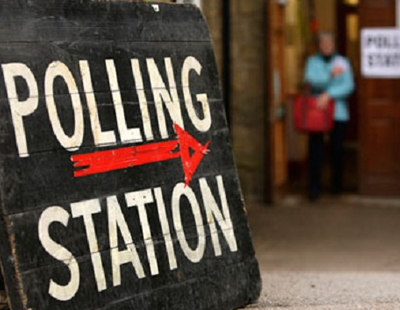Rent Controls
Labour is now officially against following a statement by former shadow housing secretary Lisa Nandy. But local parties and mayors, especially Sadiq Khan in London, are agitating for them. No one knows for sure how new housing spokesperson Angela Rayner will hop. This debate may well surface at the party’s Liverpool conference next month.
Conservatives are against - housing secretary Michael Gove has been unwavering on this point if no other. There are a few local voices in favour, but they do not hold sway.
Large Scale Rental Reform
For all the rhetoric, there’s little difference between the major parties on this. Labour says that within 100 days of gaining office it would “tilt the balance of power towards tenants with new rights and protections for renters.” Its Renters Charter would scrap Section 21, give tenants the right to keep pets and decorate properties, and lengthen notice periods.
If that sounds familiar it’s because it’s not very different to the Renters Reform Bill awaiting second reading in the Commons. There are senior Tories wary of the anti-landlord stance of the Bill so expect Gove to use the Manchester conference to placate uneasy MPs - but the government will emphasise the consumer-friendly aspects like the Rental Ombudsman and scrapping Section 21.
On short lets there is also unanimity - both parties, driven on by local activists in holiday resort areas in particular, are edging towards landlords requiring planning consent and being subject to significantly higher council tax.
Housing Delivery
Continued ambiguity over the Tories’ one-time ambition of building 300,000 homes annually by the mid-2020s has led to widespread cynicism (inside and outside the party) about what it really wants. Recent nods towards liberalising permitted development rights and more intensive urban brownfield house building is considered by experts to be headline-grabbing but ineffective.
Labour wants the 300,000 target back and has well-argued but potentially-controversial policies here, such as building on ‘ugly’ parts of the Green Belt, and using compulsory purchase powers to allow land to be bought by councils for prices that exclude ‘hope value’ - making it much cheaper for housebuilding. Will this radicalism survive in Keir Starmer’s onward march to the centre ground?
First Time Buyers
Labour says it wants FTBs (and local house movers) to have a time-limited first choice in some new housing schemes, and will introduce a mortgage guarantee scheme to help FTBs funded, in part, by a crowd-pleasing surcharge on homes bought by overseas investors. Both ideas win plaudits but may be hard to implement - will the conference give us details?
Conservatives can point to the apparent success of Help To Buy while it lasted, and Prime Minister Rishi Sunak has hinted that HTB 2 may be on its way and he will follow Labour in declaring a five year objective to reach 70 per cent home ownership. Pro-FTB sentiment amongst the public and lobbying by Tory MPs mean this may be an area of bold policy announcement at the Tory conference.
Domestic Energy Efficiency
This is a thorny topic since the rumpus over Sadiq Khan’s ultra-low emissions zone - are ambitious energy efficiency measures too expensive for parties to support during a cost of living crisis and in the run-up to an election?
The Conservatives have declared EPCs to no longer be fit for purpose but have not backed that up with details for possible reform or abolition. Michael Gove has also backtracked from private rental sector targets to achieve EPC-c ratings by 2025…just 15 months from now: but again he has not provided details. Expect announcements at the conference.
Labour is also loose on detail this side of its conference but promises a National Warm Homes Plan, possibly resuscitating some of the green grants for homeowners and possibly landlords.
Other Issues - and other parties
Expect both major parties to commit to abolish leasehold and introduce something like Commonhold: you may not know it but this is already government policy although progress has been negligible to non-existent.
Likewise, both parties will make commitments to improve volumes of social housing - Shelter, a proponent of this, will be present with a fringe meeting at each conference. The Tories will point to their £11 billion Affordable Homes Programme and Labour will renew its pledge to make social housing the second biggest tenure in the UK (currently it’s third). But against a backdrop of strict limits on public spending and a planning system favouring public dissent over decisiveness, it’s difficult to see wholesale increases in public housing provision any time soon.
The Green Party will make play of its influence on housing policy north of the border, especially rent caps and an eviction ban. In reality the Scottish National Party has growing numbers of key members unhappy with its alliance with the Greens, citing reduced investment in housing as a direct by-product of the cap and ban.
However, whatever the party conference, expect some surprises.
Housing has become a big issue, at long last, and it is unlikely politicians will miss an opportunity to win headlines through an unexpected policy announcement.
Happy autumn!








/LizzTrussPM-400x310.png)
















Join the conversation
Jump to latest comment and add your reply
And the resulting dog fight for young urban liberal votes will lead to even less supply if thats possible, higher rents, more homelessness, all in their name, gobble gobble vote the turkeys. When will these younger voters stand up and demand for a party that is prepared to incentivise and encourage supply to bring down costs for everyone? I suspect very few understand thats how it works, it's fundamentally an anathema for anyone not conservative, and it will be a very brave and possibly suicidal politician who takes a stand on landlord tax breaks.
muppets!
Please login to comment